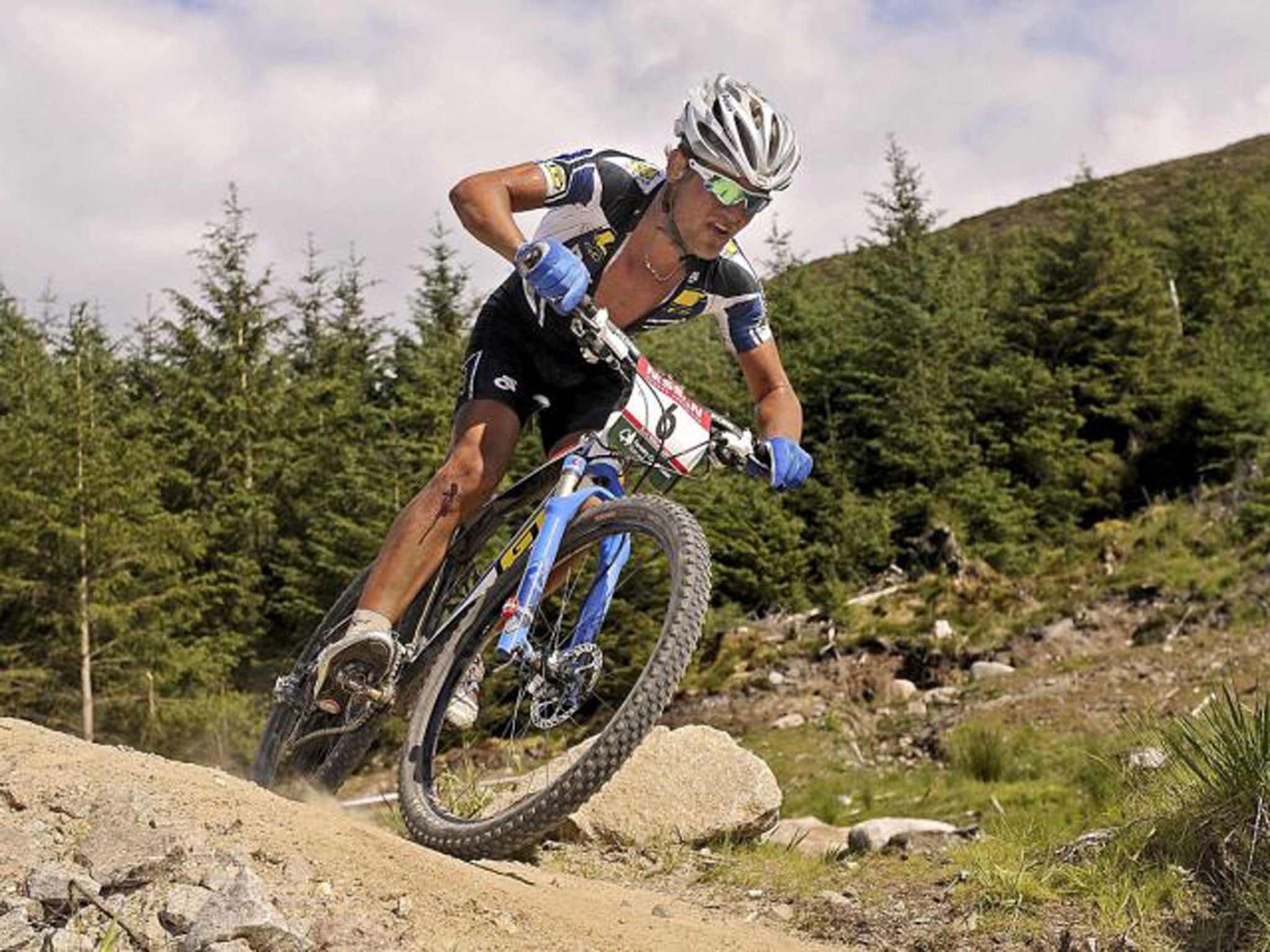Cycling: Burry Stander - top riders lead calls for reform after death of another champion
Pro cyclists in mourning after 25-year-old South African mountain biker is killed while out training

Riders worldwide have expressed consternation and regret as yet another top cyclist, the Olympic mountain biker Burry Stander of South Africa, has been killed in a traffic accident while training.
Stander was 25. He was South Africa's most successful mountain biker, having won the world Under-23 title in 2009 and been placed fifth at the London Olympics last summer.
Details of what happened in Stander's fatal accident are still sketchy, but his crash follows a grimly familiar pattern of recent months: Britons Mark Cavendish, Bradley Wiggins and British Cycling head coach Shane Sutton have all been hit by cars or vans, albeit without such tragic consequences.
"It's a very sad start to the new year and a massive loss to African cycling," said Chris Froome on his Twitter account. Britain's Tour de France runner-up, born in Kenya and a former mountain biker himself, Froome was in South Africa when the accident happened and he organised a memorial ride for Stander in Johannesburg last night.
In Spain, which has the highest number of cycling fatalities in road accidents in Europe, two Spanish professional racers, mountain biker Iñaki Lejaretta and road racer Victor Cabedo, have been killed in vehicle collisions since September. Another rider, the Galician cycling president Cristobal Hermida, was killed on Thursday when a lorry struck his bike. That this spate of accidents should happen when road fatalities in Spain in 2012 dropped to their lowest level since 1960 only highlights the dangers.
"Bike riders are considered to be second-class road users, and drivers are increasingly aggressive towards us," said professional cyclist Pedro Horrillo. "That means more and more accidents." Horrillo believes that the only way forward is to "really increase the fines for motorists who collide with cyclists".
Others disagree. "If somebody's drunk or is high while driving, no amount of fines is going to stop them," said Carlos Sastre, the 2008 Tour de France winner. "The best way forward is to educate children and young adults about how to drive properly."
Both Sastre and Horrillo emphasise that cyclists are exceptionally vulnerable – "in an accident, it's always the bike rider that comes off worse" Sastre says – and that professional riders face higher risks than most.
Quite why bike accidents should be increasing in a country like Spain which has not experienced a recent hike in the number of riders – as has happened in Britain – is "due to people here being more and more stressed out and using more and more technology, mobiles or whatever, when driving," according to Horrillo.
Still training regularly with a group of professional riders in the Basque country, Spain's cycling heartland, Horrillo added: "We try to avoid the most dangerous roads, but sometimes it's not practical. Almost every day, we have no choice but to ride along the road where Lejaretta was killed.
"The worst thing is we've grown to accept danger as part of our profession, when that shouldn't be the case."
Join our commenting forum
Join thought-provoking conversations, follow other Independent readers and see their replies
Comments
Bookmark popover
Removed from bookmarks